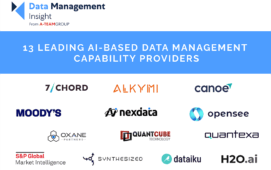The UK Financial Services Authority’s (FSA) recent fining of German bank Commerzbank for its transaction reporting failures is just one instance of the regulator’s current focus on the data details of a firm’s business. One of the underlying problems in Commerzbank’s case was the incorrect allocation of counterparty codes and the use of proprietary codes for these counterparties, which is exactly why the FSA and other European regulators are so keen for the mandatory inclusion of Bank Identifier Codes (BICs) in these transaction reports, among other data standards.
The need for a more standardised approach to identifying counterparties to a trade and for identifying instruments themselves is all part and parcel of the current review of MiFID going on within Europe. The transmission of this data across the central Transaction Reporting Exchange Mechanism (Trem) in Europe further highlights any failings in firms’ data details, as the miscommunication goes cross border. There is no doubt that the UK has blazed the regulatory trail with regards to implementing MiFID but if even the FSA is spotting serious systems and controls failures with regards to reporting data, what hope does the rest of Europe have?
Under MiFID, both buy and sell side firms are required to report accurate and complete trading data through approved reporting mechanisms (ARMs) by the end of the next business day post-trade. This includes a complete set of accurate reference data, which is seemingly where many firms are falling foul of the FSA. Moreover, firms may be able to outsource this reporting function but they are still held accountable for the reports that are produced at the end of the day and must therefore closely monitor these to ensure they meet the regulator’s standards.
The Committee of European Securities Regulators’ (CESR) MiFID review is looking for more detail from firms about how they are meeting the requirements of the directive, which came into force way back in November 2007. With regards to reference data, the European regulator is therefore looking for feedback on execution data quality from firms, execution venues and vendors; details on firms’ post-trade transparency regimes; and whether counterparty and client identifiers should be mandated for transaction reporting.
The deadline for responses from the industry to the MiFID review is the end of this month (31 May), before the regulator pulls together the requirements into an updated directive. The likely outcome for firms, vendors and trading venues will be the introduction of new data definitions around execution, which will entail costs around the implementation of new standards. If BICs are mandated as counterparty and client identifiers across Europe, then firms will have to alter their systems accordingly; ditto with any changes to instrument codes and standardisation.
Last year, CESR published a consultation paper recommending the adoption a set of identifiers and classifications for OTC derivatives for the purpose of including those instruments in the exchange of transaction reports amongst CESR members. The extension of MiFID to more complex instruments is part of what has been dubbed MiFID mark two by many in the market, but before this can happen, a lot of the issues that firms haven’t tackled as a result of the first instance of MiFID must be ironed out.
Subscribe to our newsletter




